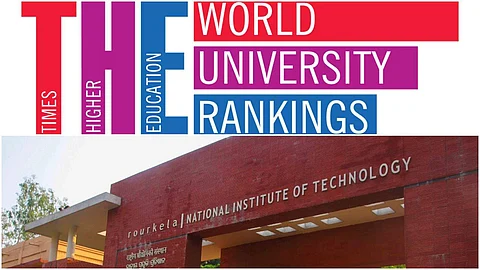

Over the last couple of years, Indian educational institutions have really been trying hard to break into the global rankings and find a spot. Some institutes have also managed to find their way into these lists, OP Jindal Global University is one of them. They've recently been chosen as one of the Institutions of Eminence. Which is why it's Founding Vice-Chancellor, C Raj Kumar has come up with a ten-point growth and reform place for Indian Universities.
Kumar believes that India has great promise of becoming a globally acclaimed academic space, "Addressing the complex challenges of higher educational processes requires that we understand the underlying causes, anticipate long term trends and collaborate with a range of national and international stakeholders." Kumar also says it is important to acknowledge and appreciate the complex interplay of governance, resources and knowledge systems, not just individually but as the interaction of these systems with each other.
The first suggestion that Kumar makes is for not-for-profit and philanthropic University to be set up. "The issue of philanthropy in particular needs greater and urgent attention. The historical evolution of public universities and their exclusive dependence on the government for all financial resources have contributed to limiting the capacity of funding that could be available for public universities," he explained. Kumar also pointed out that opening up of the private sector to higher education has ended up creating many mediocre institutions. "The privatisation of higher education has not been driven by philanthropy but to a large extent by commercial and for-profit interests that do not have a symbiotic relationship with the vision, values and ethos of a university," he added.
The second point Kumar makes is that there is a need for academics freedom and institutional autonomy in the country. "Protecting academic freedom ought to be part of the social responsibility of both individuals and institutions. The state's role and responsibility is to also ensure that other actors, including the media, political parties and the citizenry do not by their actions undermine academic freedom," the professor explained.
He also adds that autonomy resonates with academic freedom, however at the same time it is critical for autonomous educational institutions to not see their academic cohort without any form of accountability.
Even though students these days are moving away from mainstream courses like Engineering, we are still a long way off when we consider the growth of liberal arts in the country. Kumar firmly believes that multidisciplinary and interdisciplinary learning is of paramount importance. "A liberal arts and humanities education foregrounds and fosters critical thinking capacities in students - a behavioural aspect that is more and more in demand today, across industries," Kumar explains.
The other suggestions that Kumar makes are a transparent admission process with no management quota, internationalisation at the heart of institution-building, hiring of outstanding faculty, inspiring teachers and prolific researchers and also building a culture of research and publication.
He also stressed on the need for promoting diversity, inclusion, accessibility and community engagement in universities.
"One of the strongest critiques of Indian higher education institutions is that they tend to get complacent with little success. He believes that there is a unique socio-political context cannot be used to justify the lack of sustained global competitiveness," he explained. The last two points that Kumar makes are institutionalising accreditation, ranking and benchmarking and developing active participation of all stakeholders for good governance.
"World-class universities can be developed and nurtured only when all the stakeholders of a university - students, faculty, staff, parents, alumni - in addition to relevant government agencies and departments, institutional partners and collaborators, potential donors and partners, neighbouring communities and other stakeholders become active participant," he said.
